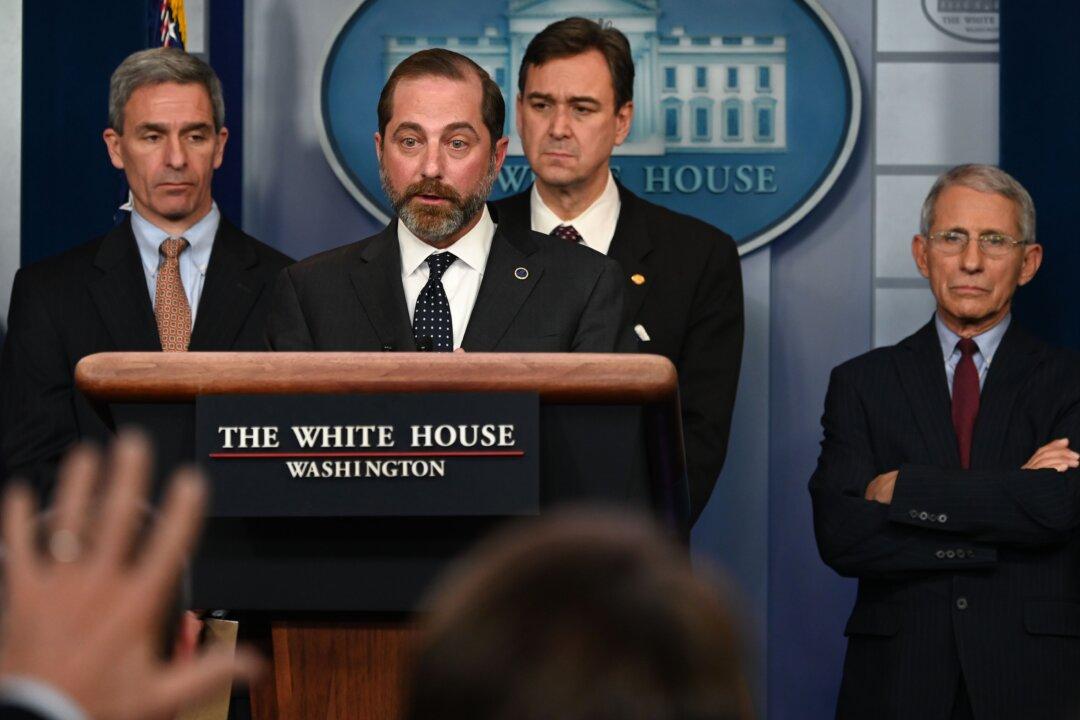The United States will bar entry to foreign nationals who have been in mainland China in the past 14 days, in a ramp-up of efforts to stem the spread of the coronavirus.
The temporary ban will not apply to the immediate family of U.S. citizens or permanent residents and will take effect at 5 p.m. EST on Sunday, U.S. Secretary of Health Alex Azar announced at a press conference on Jan. 31.





